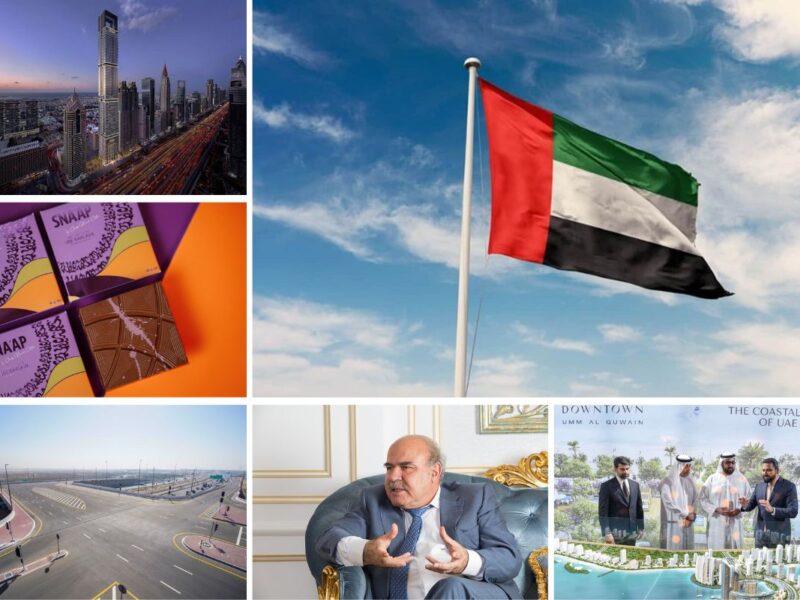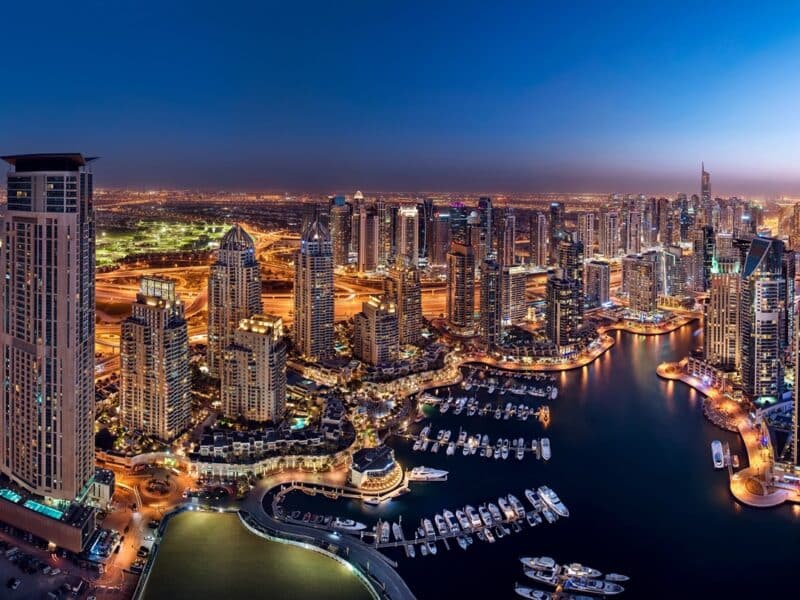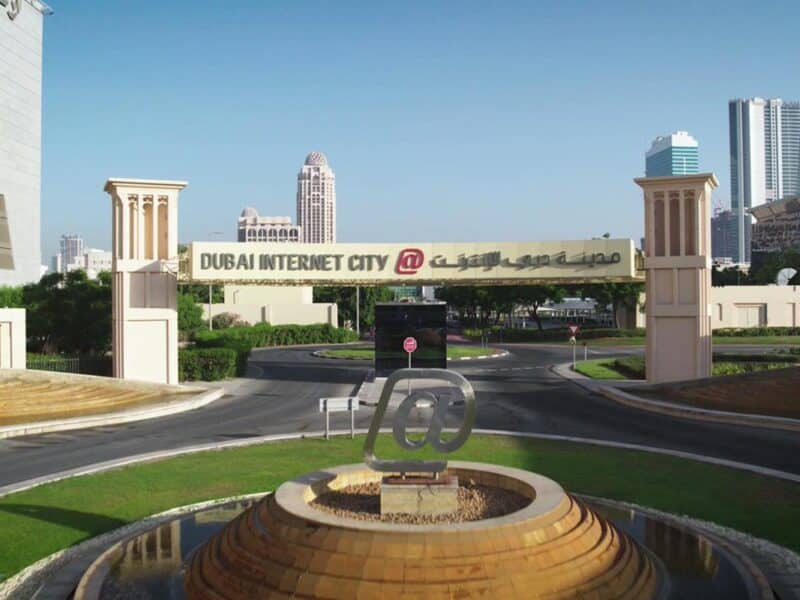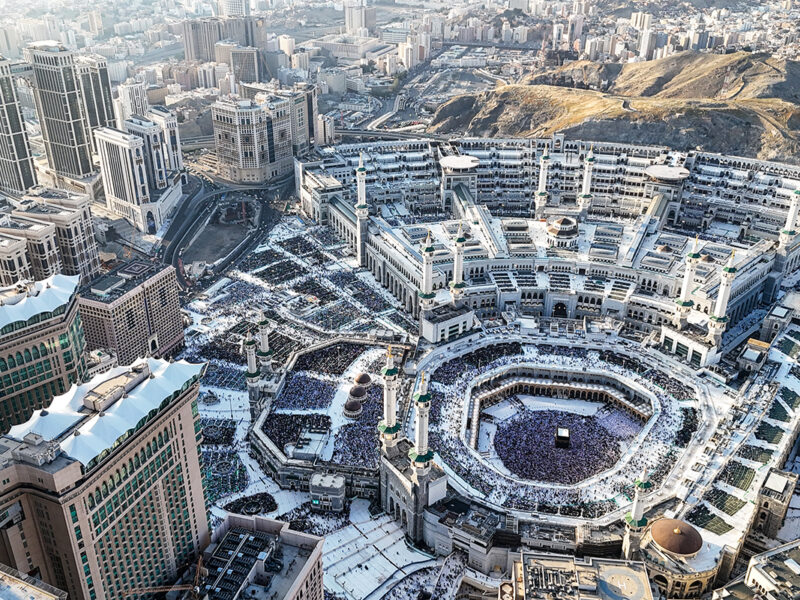It seems like every hour in Riyadh is rush-hour. Outside the Dar Al Arkan headquarters on Al Ma’ather Street, in the heart of the Saudi capital, the traffic is at a standstill. Not that this bothers Youssef Al Shelash, Dar Al Arkan’s chairman and founder; more traffic means more people, and more people means more demand for the product that Saudi Arabia desperately needs, and which Dar Al Arkan stands ready to provide.
That product, of course, is housing. As the kingdom’s biggest listed developer, Dar Al Arkan, is right now uniquely positioned to benefit from a building boom that will rival anything seen anywhere else on the planet.
“The market and economic conditions that contributed to healthy land sales margins during previous years are gradually re-emerging,” Al Shelash points out. “In addition, the latest developments in the Saudi market are likely to have a positive impact on the real estate industry in general.”
He’s certainly not wrong about that. Last year, HRH King Abdullah made housing one of the key platforms of his $130bn social spending plan; estimates vary, but the current belief is that around 1.65 million homes will need to be completed over the next five years — equating to 275,000 units a year.
But there have been question marks over whether Dar Al Arkan will be able to repay $1bn worth of sukuk maturing in the third quarter. Needless to say, the firm has come out fighting. In a variety of statements, to various news agencies, company officials have made it clear — in some detail — that repaying the debt will not be a problem. In a country where visibility into the inner workings of large companies has not always been apparent, it seems that Dar Al Arkan is being more transparent than most. Al Shelash admits that it has been tricky for the developer to obtain funds as a result of the credit crisis.
“In such a difficult environment, our challenge is not profit maximisation, but rather how to maintain our business commitments and keep our projects on track — as a result, cashflow management has been our key focus these last few years,” he says.
Last year was particularly tough. Revenues dropped 20 percent to SAR3.3bn, while profits fell 25 percent to SAR1.1bn. Al Shelash says that the firm — mindful of its obligations this year — cut capital expenditures to SAR1.6bn, repaid SAR330m of debt, transferred SAR1.3bn to its cash reserves, thus closing out the year with SAR2.5bn in cash.
Article continued on next page
“Since 2007 and up to now, the company has paid SAR4.3bn as cash dividends and about SAR4bn to other creditors — that’s over SAR8bn in cash outflow over the last five years. In the meantime, the company is developing six giant projects. So it is worth noting that these accomplishments — which I consider great achievements — took place during the worst crisis in living memory.”
When I ask Al Shelash how the company proposes to meet its obligations, he smiles.
“That is the big question, isn’t it? Frankly, I have no worries about repaying the sukuk on its due date, as this is already factored into our financial plans, and we are accordingly building up cash reserves from our operations,” he says.
“It is also worth noting that the company has a very solid asset base, which can be used as collateral to secure funding if any gap needs to be plugged. Therefore we are extremely confident that the company will be quite ready to effect the due payment on maturity.”
More specifically, the chairman points out that by the end of 2011, Dar Al Arkan had cash reserves amounting to two thirds of the sukuk repayment, while outstanding payments — currently in the process of being collected — was enough to cover the last third. In addition, over the first half of the year, Al Shelash believes that the firm will “comfortably generate funds from ongoing operations in line with recent quarters”.
In addition, the chairman thinks that any attempts to raise more sukuk — when the 2012 debt is paid off — would be met with enthusiasm by investors.
“I think we are not so concerned about this issue, as the loans we have obtained do not exceed 30 percent of total assets, and this categorises the company as one of the best in the region,” he says. “Therefore, I don’t think we will face any challenges if we intend to obtain more loans.”
Al Shelash also points out that, once the debt has been repaid, Dar Al Arkan’s leverage will drop to beneath 20 percent. Moreover, he also reveals the results of a Capital Markets Authority (CMA) investigation into a hefty sample of Dar Al Arkan’s land bank. The sample – originally believed to be worth SAR9.7bn (around 52 percent of the book value of the entire land bank) – was investigated by a series of experts to establish its true worth – with each property being evaluated by at least two experts.
“The fair evaluation results valued the sample at SAR14.8bn – a surplus value of SAR5.1bn over and above the book value recorded in the company’s account books,” the chairman says. “Company management expects, in view of all the evaluation indicators revealed by this process, that the fair value for all the company’s real estate investments, which stands for SAR18.6bn, to reach 153 percent of the book value of these projects. That would be positively reflected on the company’s financial statements.”
Article continued on next page
And despite the debt concerns, one issue stands out. The developer’s share price has risen by more than 50 percent in the year to date, a startling rise even by the standards of a stellar quarter for Gulf corporate stocks. Clearly, investors think that the long-term growth curve of the company outstrips near-term concerns. So why are they so confident? Make no mistake, Saudi Arabia’s real estate market is on the brink of a major boom. Propelled by King Abdullah’s announcement last year, the government has earmarked the sector for heavy investment, amid a backdrop that has seen higher house prices in more desirable parts of major cities, a lack of supply, and comparatively few home-financing schemes. The result is a market where a fast-growing youth demographic is finding it increasingly difficult to buy homes. Research from CB Richard Ellis indicates that less than 35 percent of all Saudis currently own their own house. Meanwhile, Al Shelash believes that Dar Al Arkan is one of a handful of local developers that have the experience and the ability to produce mass masterplanned residential communities.
“Despite the 2009 economic turmoil, the Saudi housing industry witnessed remarkable growth and has become one of the fastest-growing housing industries in the Middle East,” he says. “The industry’s growth is even more remarkable in light of the limited number of large developers who can address the growing demand for residential property.”
Given this scenario, no wonder investors think Dar Al Arkan’s prospects look good. But Al Shelash does state that his company — and the small pool of other Saudi developers — faces three challenges. One is the lack of construction financing for project development, while another are extremely stringent rules on off-plan sales. Saudi Arabia banned the promotion of off-plan sales two years ago, and the government is clearly keen to avoid a Dubai-style housing bubble. However, that rule has an unexpected knock-on effect.
“This forces us to undertake relatively smaller projects as we cannot access pre-sales funds during the construction period,” Al Shelash says.
Perhaps the largest challenge that the local housing market faces, according to the chairman, is the continuing delays in the approval of the mortgage law. Although the Shoura Council — the kingdom’s highest consultative body — finally passed the draft of the legislation last year, the law is yet to be signed off by King Abdullah.
“I think the delay in issuing the legislation means that the company — as well as other developers — may not be able to benefit from the latent demand for housing as many Saudis cannot access sufficient funding to purchase property,” Al Shelash points out.
In addition, the chairman claims that the law could also create a mortgage industry of an annual estimated value of $32bn over the next ten years, worth as much as 23 percent of GDP. More buyers means more funding, and much higher liquidity flows to the sector.
“It is estimated that around 52 percent of Saudi households currently meet the affordability threshold for purchasing residential units, with seventeen percent identified as potential mortgage seekers,” he adds. “And the law will also allow foreign banks to invest in the kingdom, leading to the formation of specialised mortgage companies, which will deepen the pool of funds supporting real estate buyers.”
But perhaps the law’s most far-reaching effect will be to allow firms like Dar Al Arkan to play a key role in the development of affordable housing. Further evidence of the importance of this area came last year, when the government appointed Shuwaish Al Duwaihi as the country’s first housing minister, with a specific brief to solve the demand/supply problem. However, even if the mortgage law is passed soon, Al Shelash says that there are other issues that need to be addressed by the government. In particular, he calls for subsidies on the price of building materials — which he says are currently too high.
Article continued on next page
“In addition, the domestic supply of these materials needs to be increased,” he says. “In the absence of any new supply, the additional demand for materials generated by the 500,000 extra units is going to lead to even higher prices.”
“Sizeable funding will also be needed to increase development and construction capacities to be able to build these new units,” Al Shelash adds. “The government will need to find ways for both private-sector developers and manufacturers of construction materials either by providing additional liquidity with the banks, or perhaps through partnerships with government agencies. The government could also consider providing more incentives to attract foreign investment to these sectors.”
Lastly, the chairman calls on local banks, finances and the Real Estate Development Fund to “take the lead” in providing funding.
In terms of this year, Dar Al Arkan certainly has its hands full. The firm is hard at work on six major projects — Al Tilal (in Madina); the Al Qasr residential project (in Riyadh); Al Qasr Mall; Shams Al Riyadh; Qasr Khozam (in Jeddah); and Shams Al Aroos (also in Jeddah).
The total investment value of all these projects amounts to around $6.7bn (SAR25bn). Altogether, they will provide the local market with 13,000 units, although 3,500 units have already been completed. On the back of projects that are already under way, Dar Al Arkan’s land bank has the capacity to provide a further 50,000 units.
Three of the firm’s projects are nearing completion, with Al Qasr Mall — which is already 75 percent leased — set to open in the coming weeks. Meanwhile, the 1 million sq m Al Qasr project is also nearly finished, with around 92 percent of units sold. Lastly, Al Tilal, which is 7km away from one of Islam’s holiest sites, Al Masjid Al Nabawi, is also progressing quickly. Of the 499 completed villas at the site, more than 95 percent have been sold. For the mid-to-long term, diversification is clearly high on Al Shelash’s agenda. While Dar Al Arkan had an initial five-year plan to expand its portfolio to include property management right from the time the firm went public in 2007, the funding crisis brought on by the financial crash put paid to that scheme.
“We have recently completed construction of residential and retail assets that will provide us with fixed annual income from this year onwards,” the chairman says. “However, land sales will continue to provide the vast majority of our revenues for the foreseeable future.
“We recently began studying the feasibility of developing, owning and managing health, education and hospitality facilities. When we have completed that research — if the findings are favourable — then we’ll certainly move to diversify our investment portfolio across these sectors.”
By 2017, Dar Al Arkan is aiming to split its income so that 25 percent of revenues come from land sales, fifteen percent from project development, ten percent from diversified sources, and 50 percent from leasing and property management. However — despite lengthy internal debate on the issue — Al Shelash says that now is not the time to consider investing in projects outside Saudi Arabia. He also adds that the firm is not planning any completely new projects for now; instead, the focus will remain on completing its current pipeline of work.
“Over the last five years, we have developed a pipeline of projects and completed a large portfolio of finished projects,” the chairman vsays. “Together, these will continue to generate strong sales proceeds along with steady rental streams to support the company over the coming years.”
If Al Shelash’s words are anything to go by, the hordes of drivers inching their way down the nearby street could soon find themselves living in Dar Al Arkan-built homes.






